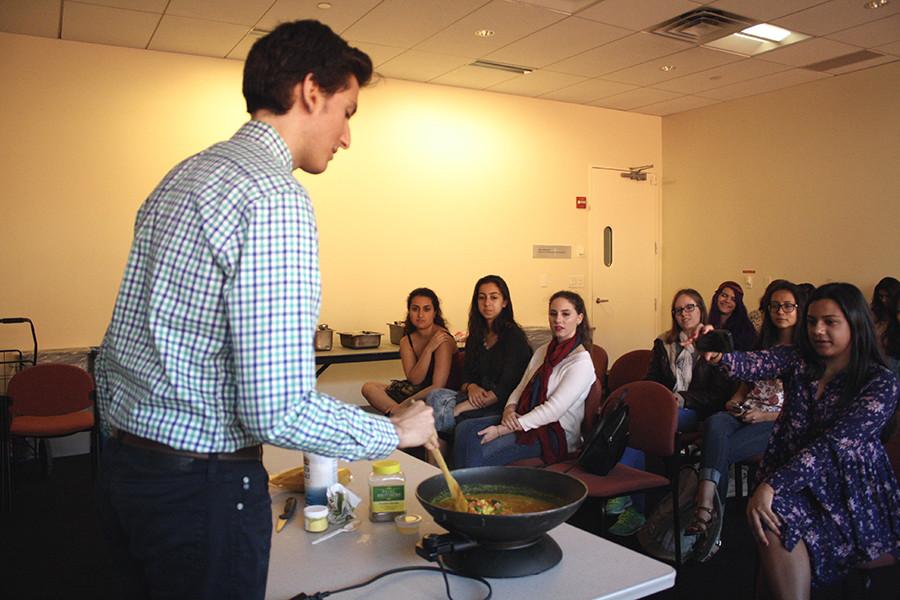Krishna Bhakti club is a vegetarian haven
Krishna Bhakti president Jonathan Rosenthal does a cooking demonstration at a club meeting in the Kimmel Center on Monday, Sep. 14, 2015.
September 21, 2015
When most NYU clubs say that their meetings include free food, students can expect pizza or cookies. But each Monday at 6 p.m., the Krishna Bhakti club gathers in Kimmel for a cooking demonstration that includes a free, homemade vegetarian meal for anyone who attends.
The Krishna Bhakti club’s mission includes promoting vegetarianism and nonviolence. The club is associated with The Bhakti Center of New York City, which provides fresh foods for the cooking demonstrations.
“The Bhakti tradition teaches that humans aren’t the only life,” said the club’s graduate alumni officer Ashish Shah. “Animals are also living beings, they also have souls.”
Although the main mission of the club is the promotion of animal and environmental awareness, the food remains a draw for its members. “The favorite part of the club is the meal,” Shan said. “It’s always extremely fresh and very tasty.”
Last Monday, CAS senior Jonathan Rosenthal led the meeting. He explained that the night’s demonstration would be a dish called kitri, a nutritious mix of rice, beans
and vegetables.
While Rosenthal does try to keep the club casual, he does teach the key components of vegetarianism: environmentalism, compassion, and health. “People go beyond the expectations that we have,” he said. “They want to start helping everyone.”
All of the Krishna Bhakti club’s meetings, including the Monday cooking demonstrations, are open to any interested NYU students. And even if you can’t make it to a meeting yourself, the club also posts recipes and cooking videos on its website.
While most of the club’s dishes are simple enough for a cook who’s just starting out, the demonstrations also provide valuable tips for longtime vegetarians.
“I always like the type of food they make,” Steinhardt junior Emily Goodacre said. Goodacre been a part of the the Krishna Bhakti club since she was a freshman, only missing meetings during her semester abroad. “It’s the little things that are genius. It changes my
cooking habits.”
A version of this article appeared in the Sept. 21 print edition. Email Yeho Hwang at [email protected].



























































































































































